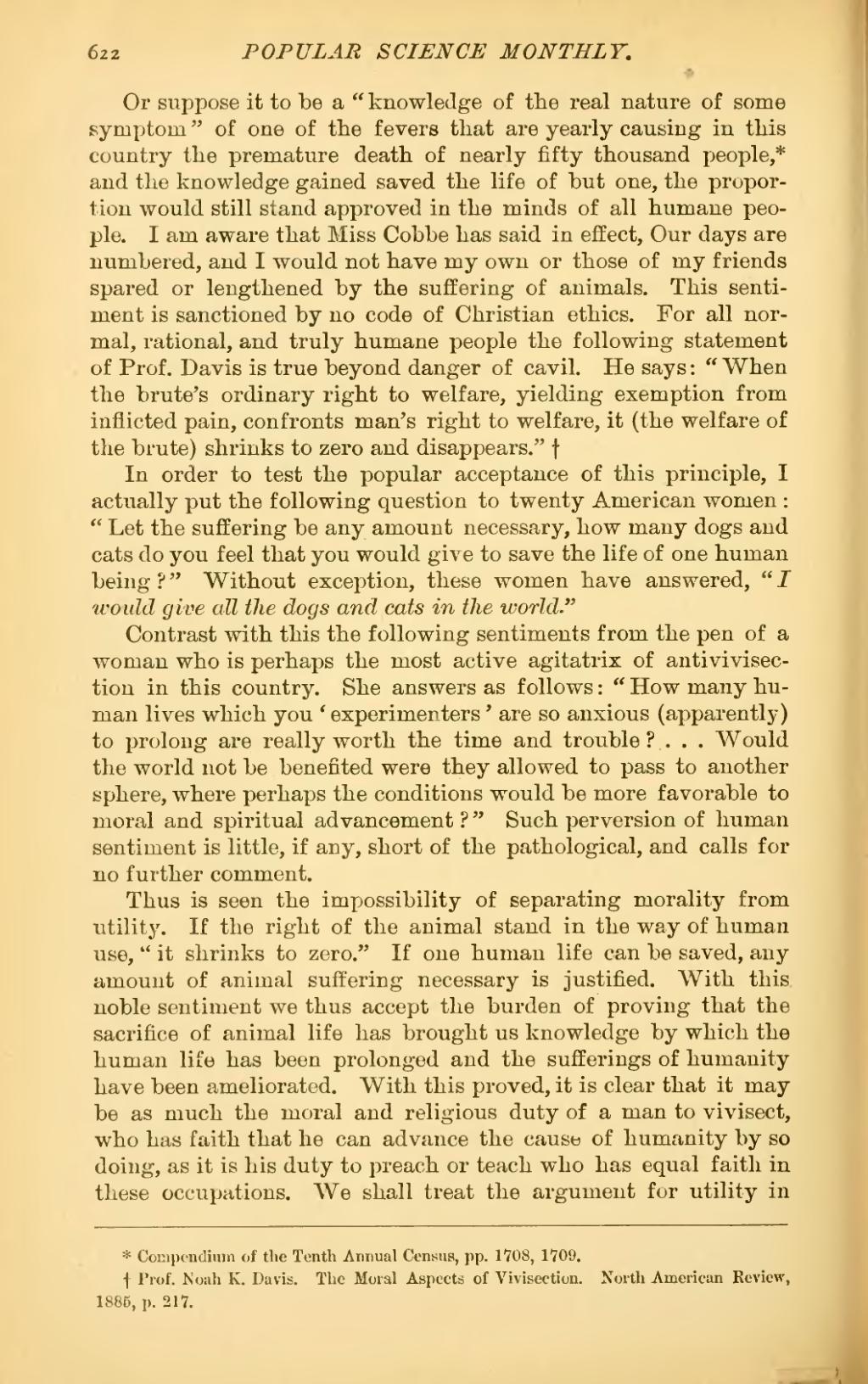Or suppose it to be a "knowledge of the real nature of some symptom" of one of the fevers that are yearly causing in this country the premature death of nearly fifty thousand people,[1] and the knowledge gained saved the life of but one, the proportion would still stand approved in the minds of all humane people. I am aware that Miss Cobbe has said in effect. Our days are numbered, and I would not have my own or those of my friends spared or lengthened by the suffering of animals. This sentiment is sanctioned by no code of Christian ethics. For all normal, rational, and truly humane people the following statement of Prof. Davis is true beyond danger of cavil. He says: "When the brute's ordinary right to welfare, yielding exemption from inflicted pain, confronts man's right to welfare, it (the welfare of the brute) shrinks to zero and disappears."[2]
In order to test the popular acceptance of this principle, I actually put the following question to twenty American women: "Let the suffering be any amount necessary, how many dogs and cats do you feel that you would give to save the life of one human being?" Without exception, these women have answered, "I would give all the dogs and cats in the world."
Contrast with this the following sentiments from the pen of a woman who is perhaps the most active agitatrix of antivivisection in this country. She answers as follows: "How many human lives which you 'experimenters' are so anxious (apparently) to prolong are really worth the time and trouble?. . . Would the world not be benefited were they allowed to pass to another sphere, where perhaps the conditions would be more favorable to moral and spiritual advancement?" Such perversion of human sentiment is little, if any, short of the pathological, and calls for no further comment.
Thus is seen the impossibility of separating morality from utility. If the right of the animal stand in the way of human use, "it shrinks to zero." If one human life can be saved, any amount of animal suffering necessary is justified. With this. noble sentiment we thus accept the burden of proving that the sacrifice of animal life has brought us knowledge by which the human life has been prolonged and the sufferings of humanity have been ameliorated. With this proved, it is clear that it may be as much the moral and religious duty of a man to vivisect, who has faith that he can advance the cause of humanity by so doing, as it is his duty to preach or teach who has equal faith in these occupations. We shall treat the argument for utility in
